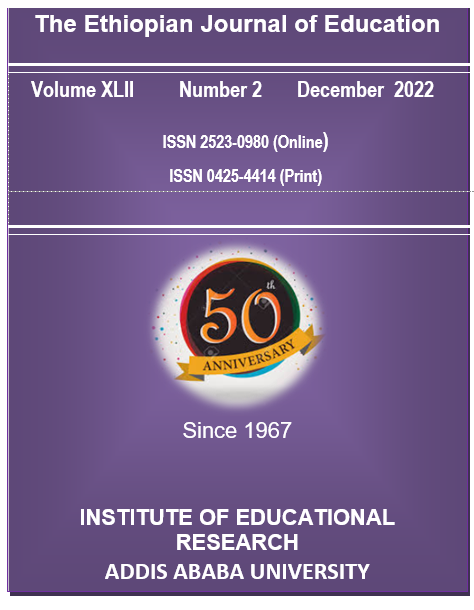Undergraduate Student Assessment in Selected Public Universities of Ethiopia: A Qualitative Exploration of Conceptions and Practices
DOI:
https://doi.org/10.20372/eje.v42i2.4246Keywords:
Conceptions, continuous assessment, feedback, planning, practices, student assessment, public universities, EthiopiaAbstract
Despite its importance in the teaching-learning process and student motivation and engagement, student assessment in universities has received very limited research attention. This study explored conceptions and practices of student assessment in four public universities in Ethiopia. We obtained qualitative data from officials, instructors (through interviews), and undergraduate students (using focus group discussions). Most instructors conceptualized planning for student assessment as a very simplified plan comprising short descriptions of assessment tools and their relative weights that often appear in the course syllabus. Most participants rightly conceptualized continuous assessment (CA) as a procedure that comprises a variety of assessment tools that are administered continuously. In contrast, only a few instructors understood feedback as a comprehensive procedure useful for monitoring and improving students’ learning. The findings also indicate problems in the practices particularly in adequately planning for student assessment, in implementing CA effectively using a mix of methods; and in the provision of feedback that benefits students. The findings disclosed several gaps in both conceptions and practices of student assessment. However, we observed no clear differences in the conceptions and practices of undergraduate student assessment due to generations of universities. The views of the participants rather suggest, more or less, similar conceptions and practices of student assessment across the four universities.
